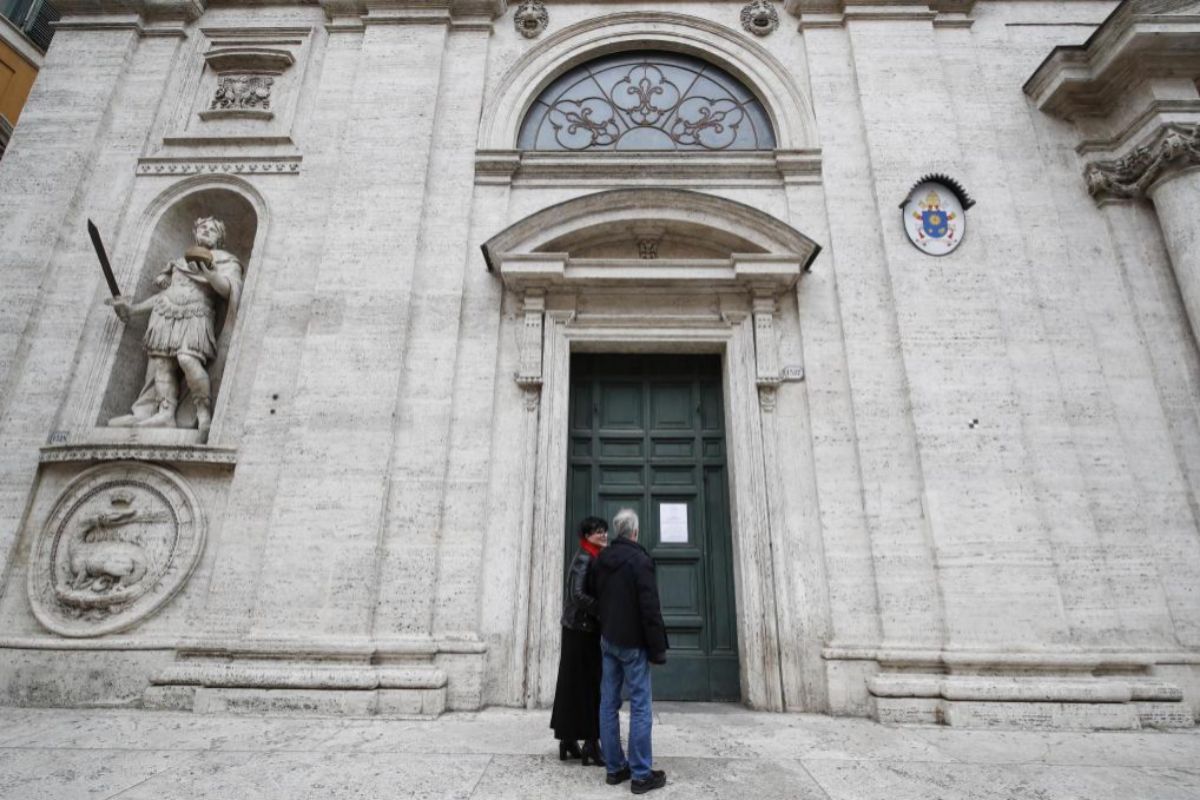- Coronavirus: Last hour on the epidemic
- Epidemiology. Health intensifies surveillance in some areas
- Map: This is how the coronavirus has spread
Criticisms of Italy are increasing for its performance against the coronavirus epidemic. The country, which accumulates a balance of almost 1,600 cases (with 34 deaths) and on Sunday registered more than 500 new infections, is in the spotlight of the entire planet, after having become one of the main sources of infection of the pathogen.
Although the Italian health authorities have taken steps to try to control the outbreak, several experts point out that there has been some lack of coordination and use of contradictory measures in the management of the crisis they face. This was suggested on Sunday by Fernando Simón , director of the Center for Coordination of Health Alerts and Emergencies of the Ministry of Health, who described as "strange" the fact that Italy does not allow mass events to be held within its borders and, nevertheless, has allowed Italian citizens to leave the country to attend sports meetings without any control measures.
The same opinion was shown by Antoni Trilla , head of the Preventive Medicine and Epidemiology service at the Hospital Clínic de Barcelona. "Especially at the beginning, Italy adopted controversial measures , such as the decision to take the temperature to travelers who arrived in the country and, however, not to those who left when there was already a source of contagion," said the dean of the University of Barcelona.
In a crisis situation like the current one, the specialist continued, coordinated management is necessary to follow the same protocols and carry out harmonized measures at all levels. "I think that Spain, in that sense, is doing very well," he said.
Controversy
In Italy, criticism for the management of the emergency by the Italian authorities divides experts and politics. The opposition led by the Matteo Salvini League criticizes that the Giuseppe Conte government will not close the borders and suspend the Schengen treaty to curb the spread of the virus.
Some experts regret that the Italian authorities ignored the recommendations of virologists such as the famous Roberto Burioni , who after declaring the epidemic in China, suggested submitting quarantine in Italy to all people who had traveled to the Asian country as a preventive measure. "Something else could have been done and this would have delayed" the epidemic , the virologist Giorgio Palú said in a television interview, who believes that the Government has taken correct precautionary measures but criticizes that they have arrived late.
However, most specialists agree that none of these measures would have allowed limiting the spread of the virus since, probably, the virus arrived in Italy long before its spread was known. "My hypothesis is that the virus circulates in Italy even before flights were limited from China," he says in an interview with Corriere della Sera Massimo Galli , director of the department of infectious diseases at Sacco Hospital in Milan. Galli defends the precautionary measures implemented by the regional authorities, which include the closure of schools, theaters, museums and limitation of hours in bars and discos. "It was the minimum that could be done," he says.
One day after confirming the death of the first Italian with a coronavirus, the Government isolated 11 municipalities in northern Italy , considered the epicenter of the outbreak in the transalpine country, and quarantined some 50,000 people in the Veneto and Lombardy regions. The measure, one of the strictest approved so far in a European country, was "absolutely necessary" to control the spread of the virus, according to immunologist Antonio Lanzavecchia , director of the Bellinzona Biomedicine Research Institute. An opinion shared by most experts in Italy.
Walter Ricciardi , a member of the World Health Organization (WHO) and an advisor to the Italian Ministry of Health, believes that closing borders to contain the virus "has no scientific evidence" and criticizes, instead, the lack of coordination between the regions and the central government in the first days of the emergency. In an interview with La Repubblica , Ricciardi says that the "fragmentation of the health system" in Italy, where the powers are transferred to the regions, "can have lethal effects because it is necessary to adopt a unitary line based on proportional measures."
Most specialists support the Government's thesis, which argues that the high number of positives confirmed last week is because Italy is conducting more tests than any other European country. "Italy is experiencing a more critical situation because it is looking for cases more actively than others," said the prestigious Italian virologist at the University of Florida, Ilaria Capua. "You had to do it like this from the beginning," says Ricciardi. It is for this reason that since last Thursday, Italy only performs coronavirus tests for those who show symptoms of the disease and comes from one of the areas considered at risk. According to health authorities, Italy has carried out more than 10,000 tests to detect possible cases of coronaviruses against the around 1,000 that have been carried out in France and Germany.
According to the criteria of The Trust Project
Know more- Science and Health
- Coronavirus
- Covid 19
Coronavirus How to wear coronavirus masks
Health How does a hospital act on suspected cases of coronavirus?
SaludCoronavirus, last minute: four cases in Spain and first allusion to a suspension of the Olympic Games

